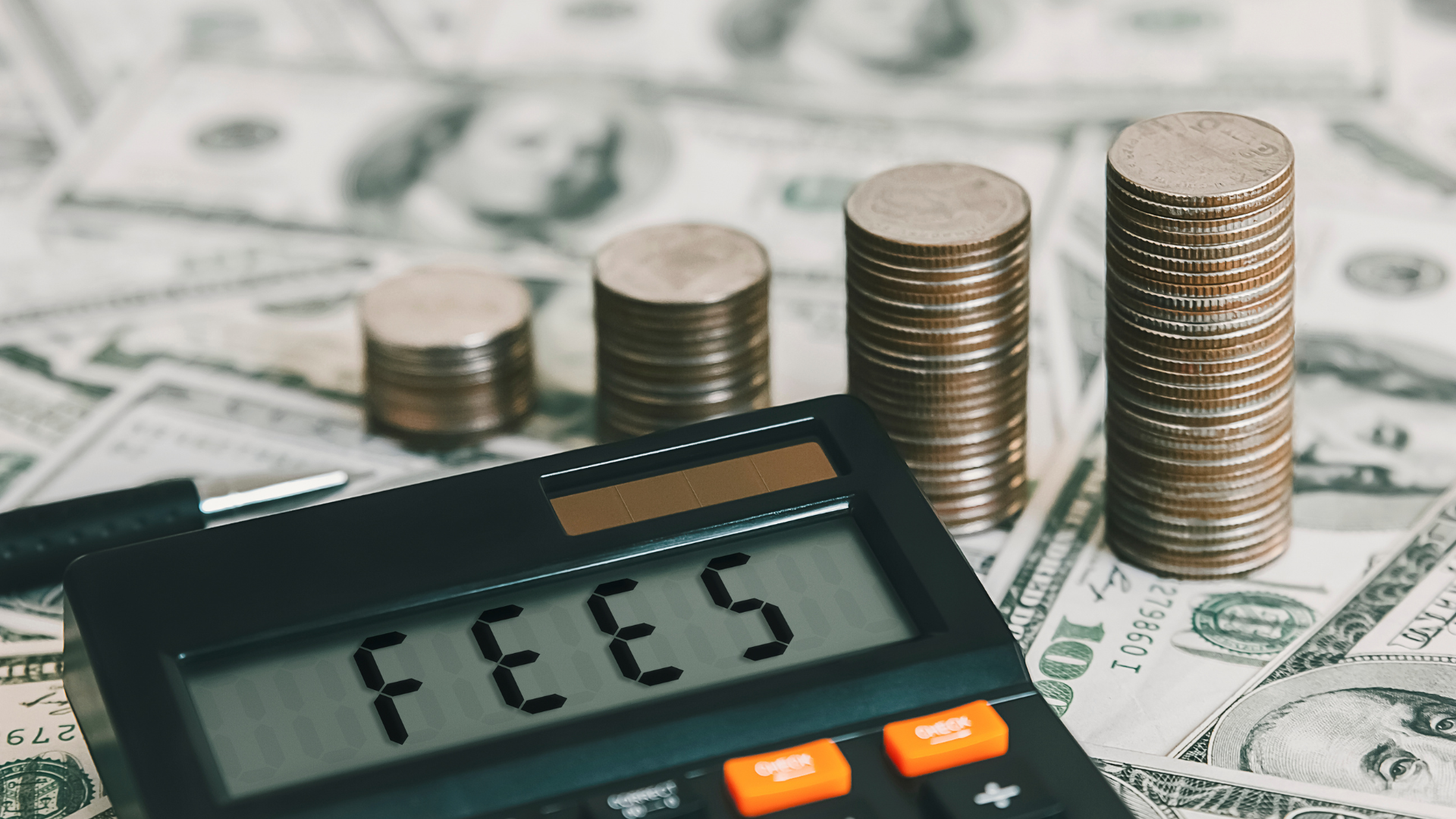
Introduction
Conveyancing fees are essential when buying or selling real estate in Australia. They cover the legal work required to transfer ownership of a property smoothly. These costs aren’t set in stone – they vary based on location, property type, and whether you decide to go with a lawyer or a conveyancer. In this guide, we’ll unpack what conveyancing fees include, why they matter, and how to make the best choice for your needs.
Want to understand the specific top conveyancing services and fees for your next property purchase? Check out our list of the best conveyancers below.

What Are Conveyancing Fees?
Conveyancing fees are the costs for the legal work involved in buying or selling a property. When you hire a conveyancer or property lawyer, they handle all the paperwork, checks, and processes needed to transfer ownership from one person to another. It’s up to them to ensure the transfer of ownership is smooth and hassle-free. Of course, this expertise doesn’t come free, so the fees you pay cover the work needed to get everything sorted properly, helping you avoid legal headaches.
Who Charges Conveyancing Fees?
Conveyancing fees are charged by either a licensed conveyancer or a property lawyer. While both can handle the legal side of both buying property and selling property, there are some differences between the two:
- Licensed Conveyancers focus solely on property transactions, handling everything from contracts to settlement. They’re usually more affordable than lawyers, making them a popular choice for straightforward residential deals.
- Property Lawyers can provide the same services as conveyancers but also bring broader legal expertise. Their fees are often higher, but they’re a good option if your transaction involves complex issues, tricky contract terms, or potential legal disputes.
What’s Included in Conveyancing Fees?
Conveyancing fees cover all the essential steps to make sure your property deal goes through smoothly. Here’s what’s usually included:
- Conducting Title Searches and Property Checks: Your conveyancer digs into the property’s history to check that the title is clear of any legal claims or hidden debts. It’s basically a background check on the property to avoid any nasty surprises later on.
- Preparing the Legal Documents: From drafting the contract of sale to reviewing transfer documents, your conveyancer handles all the critical paperwork. They ensure everything is airtight, so you don’t have to worry about missing legal details.
- Coordinating with Your Bank or Lender: Your conveyancer will work directly with your bank or lender to sort out all the financing details. This helps keep the process moving without any hiccups.
- Organising Property Inspections and Certificates: Your conveyancer will also help secure the council’s and other authorities’ essential certificates and permits.
- Managing the Settlement Process: Finally, your conveyancer handles the property settlement, ensuring all legal requirements are ticked off, and the transfer of ownership is smooth.
How Much Do Conveyancing Fees Cost?
In Australia, conveyancing fees range from $700 to $2,500 for most property transactions. Prices can vary across the country and will change based on your specific property and the work involved – but this is a good ballpark figure to keep in mind as you plan your budget.
On the other hand, a property lawyer tends to charge higher fees due to their broader legal expertise. Average costs are closer to $1,500 to $3,500+, especially if the transaction is complex or requires additional legal advice.
Factors Affecting Conveyancing Costs
The cost of purchasing and conveyancing services depends on a few critical factors:
- Location: Conveyancing fees can vary depending on the state or territory. There are slightly different regulations, which can affect the cost.
- Property Value: Higher-value properties usually need more detailed searches and services, which can increase the fees.
- Type of Transaction: If you’re a first-time homebuyer or buying off-the-plan, fees might be different because these transactions often need extra legal attention.
- Experience: Experienced conveyancers or lawyers tend to charge more, but they often provide faster, more reliable service.
- Additional Services: Complex deals, like investment properties or contracts that need heavy negotiation, might involve extra professional fees.
State-by-State Fee Comparison
In Australia, conveyancing fees may differ by state:
- NSW – Typical fees range between $1,200 and $2,500.
- Victoria – Fees generally fall between $1,000 and $2,000.
- Queensland – Average conveyancing fees are between $800 to $1,800.
For a clearer idea of costs, it’s best to contact a licensed conveyancer or lawyer directly. They’ll give you a detailed quote based on your property and what services you need. We’ve shortlisted the top conveyancers in Sydney, Melbourne and Brisbane to simplify things.

Breakdown of Conveyancing Costs
Conveyancing fees usually consist of two main parts: professional fees and disbursements. Here’s what each includes:
Professional Fees
Professional fees cover the conveyancer’s office or lawyer’s time and expertise. This includes handling contracts, settlement management, and dealing with banks and other parties involved.
Disbursements
Disbursements are fees paid on behalf of the client for external services and may include:
- Title Searches verify the property’s legal ownership and check for encumbrances or restrictions. They typically cost between $20 and $100.
- Property Certificates and Council Rates Checks: These involve obtaining certificates from local councils to confirm rates, zoning, and other property details. Fees vary by region but generally fall between $50 and $250.
- Mortgage Registration and Transfer Fees: These are government charges for registering the new ownership and any mortgage on the property. Costs are approximately $100 to $200.
- Other Administrative Fees: This includes expenses for file management, postage, photocopying, and other administrative tasks, typically ranging from $20 to $100.
Extra Fees to Watch Out For
Additional fees may be charged for specific services like contract reviews or inspections that are not part of the contract or original scope. To avoid any surprise costs, always ask for a detailed quote upfront and ensure it includes a clear breakdown of all disbursements and services. Don’t hesitate to ask about any potential extra fees so you know exactly what you’re paying for.
4 Factors to Consider When Choosing a Conveyancer or Property Lawyer
Choosing the right conveyancer or lawyer can ensure your property deal or sale is legally airtight, reducing the risk of costly mistakes or complications down the road. Here are 4 things to consider when choosing a conveyancer:
- Reputation and Experience
A good reputation is vital when picking a conveyancer or lawyer. Check out reviews and testimonials, especially those mentioning transparent pricing and high-quality service. You want someone reliable and upfront about costs.
- Fixed Fee vs. Hourly Rate
Decide if you prefer a fixed fee or an hourly rate. Fixed fees offer predictability and are great for straightforward deals, while hourly rates might be better for complex transactions. Remember that hourly rates can make knowing the total cost upfront tricky.
- Service Inclusions
Before you commit, make sure you know exactly what the standard fee covers. Some conveyancers might charge extra for council rate checks or title updates, so ask for a detailed fee breakdown to avoid surprises later.
- Availability and Accessibility
It’s worth choosing someone who is easy to get in touch with and keeps you in the loop throughout the process. Clear communication can make all the difference, especially if unexpected issues arise before settlement.
How to Save on Conveyancing Fees
Conveyancing can eat into your budget, but there are intelligent ways to keep costs down. Here’s how:
Comparison Shopping
Don’t settle for the first quote you get. Contact a few conveyancers or lawyers and compare their costs and services. Ensure the quotes cover all potential fees, including disbursements, so you’re not hit with surprise charges later.
Opt for a Conveyancer on Simpler Deals
If you’re dealing with a straightforward property purchase, a licensed conveyancer can handle the job well and at a lower cost than a lawyer. They focus solely on property transactions, which makes them a good option for more straightforward cases.
Look Into Online Conveyancing Services
Online conveyancers can offer a more affordable, fixed-fee service, which is excellent for your budget. Just be aware that you might have a different level of face-to-face access than you would with a local expert.
Bundle Services with Other Professionals
Some conveyancers work with mortgage brokers or financial advisors to offer bundled services. This can streamline the purchase process and potentially save on overall costs when buying property.
Conveyancing Costs by Property Transaction Type
Conveyancing fees can vary based on the property deal you’re making. Here’s what you can expect for different scenarios:
First-Home Buyer
If you’re a first-home buyer, you might qualify for government grants or stamp duty concessions, which can help offset some conveyancing costs. However, these deals often need extra legal checks to ensure you’re eligible for all available benefits, so expect fees to fall on the higher end of the standard range.
Off-the-Plan Purchases
Buying off-the-plan usually involves more complex contracts and additional legal work. Conveyancers need to review developer agreements, sunset clauses, and building timelines. All of this can increase costs, so be prepared.
Investment Properties
If you buy an investment property, conveyancers may need to confirm if the property is tenanted and review the lease terms as part of the settlement process. They may also conduct searches that could reveal zoning information and planning restrictions, which is crucial for potential future development. This additional work can increase conveyancing fees, especially when dealing with a multi-unit building or commercial property.
Rural vs. Urban Properties
Conveyancing costs can differ depending on whether you buy land in a rural or urban area. Rural properties sometimes require additional searches for land use, water rights, and environmental issues, which can bump up the fees. Urban purchases are usually more straightforward, but costs vary based on the deal’s complexity and local council requirements.
Conclusion
A clear handle on conveyancing fees can help you avoid surprises and properly budget when buying a property. Whether you’re a first-time buyer or an experienced investor, choosing the right conveyancer or lawyer can save you time, money, and stress. By understanding what’s included in the fees and asking the right questions upfront, you can ensure your property transfer goes off without a hitch.
Find an expert conveyancer in your area today:

Frequently Asked Questions (FAQs) About Conveyancing Fees
1. How can I reduce my conveyancing costs?
To save on conveyancing fees, start by comparing quotes from different providers. For simpler deals, opt for a licensed conveyancer instead of a lawyer, as their fees are usually lower.
2. Can conveyancing fees be included in my mortgage?
In most cases, conveyancing fees aren’t included in your mortgage. These are considered upfront costs, so you must pay them out of pocket. However, some lenders might allow you to roll specific fees into the loan if there’s enough equity – but it’s best to check with them directly.
3. Are conveyancing fees tax-deductible?
If you’re buying an investment property, some conveyancing costs may be tax-deductible. While the professional fee usually isn’t, certain expenses like loan document preparation could be. It’s best to check with your accountant for specific advice.
4. What are disbursements, and why must I pay them?
Disbursements are the out-of-pocket costs your conveyancer pays on your behalf, like title searches and council checks for a residential move. They’re essential for ensuring there are no legal issues with the property.
5. Why do conveyancing fees differ by state?
Conveyancing fees vary because each state and territory in Australia has its own property laws and regulations. These laws affect property law and the amount of legal work involved, so the fees may be different.
6. Do I have to pay conveyancing fees upfront?
Usually, conveyancing fees are paid at settlement. Some conveyancers may ask for a small deposit or payment for disbursements upfront, so it’s best to confirm their terms beforehand.
7. Is using a personal conveyance or an online conveyancer cheaper?
Online conveyancers often offer fixed fees that can be lower than traditional conveyancers. However, you might not get the same level of personal service, so it’s a trade-off between cost and accessibility.
8. What happens if I need extra services not covered in the quote?
If extra services are needed (like a detailed contract review or dispute handling), your conveyancer contact should let you know and provide an updated quote. Always ask for clarification upfront to avoid any surprise charges.

MANSOUR SOLTANI
Mansour has spent more than two decades involved in the purchase and sale of real estate, acquiring both investment and commercial properties throughout Australia, including in major cities and smaller regional locations.
He is the proprietor of a finance brokerage firm, overseeing a portfolio worth in excess of 75 million in loans and serving a diverse clientele across Australia and a regular contributor to money.com.au. This has equipped him with extensive knowledge in various investment tactics, allowing him to offer significant insight.
